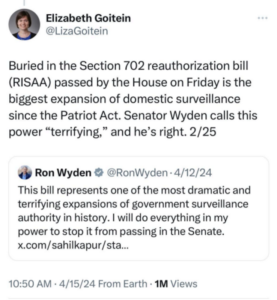The controversy surrounding creator royalties within the NFT area has but to discover a conclusion. Contemplating the fast-paced nature of the market, it comes as no shock that key gamers in Web3 are altering their place on royalties and different sizzling subjects, and breaking information that creates normalizing waves all through the ecosystem.
One such key participant is Magic Eden. In September, the Solana NFT market large introduced the launch of MetaShield, a brand new suite of instruments designed to assist NFT creators shield their royalties. Now, the platform has doubled again, stating that creator royalties will now be optionally available on {the marketplace}.
The NFT group’s response to the information was polarized. Though Magic Eden acknowledged through social media that the choice stems from the truth that creator royalties “usually are not enforceable on a protocol stage,” some really feel that the transfer was a slap in the face to creators, whereas others believed it was simply inevitable.
So what occurred that led to this choice? And what does the NFT Magic Eden about it?
Magic Eden says goodbye to royalties. However why?
Whereas it does seem to be fairly a 180-turn for Magic Eden to supply new protections for creator royalties, solely to strip them down a month later, the platform doesn’t appear to have acted out of malice. Quite the opposite, when asserting this choice to the general public, the corporate communicated that it was made with a lot issue, however finally got here after deliberating internally and fielding enter from Magic Eden merchants and creators.
“We’ve got actively been attempting to keep away from this end result and spent the previous couple of weeks exploring totally different alternate options,” Magic Eden stated on Twitter. “Sadly, royalties usually are not enforceable on a protocol stage, so we now have needed to adapt to shifting market dynamics.”
May it really be so simple as that? It undoubtedly appears so.
Curiosity in optionally available creator royalties has grown within the NFT market, and Magic Eden’s ecosystem isn’t any exception. Now, the choice of paying royalties has been handed from the vendor to the customer. So, no matter a royalty cut up set by a creator, it’s as much as the purchaser’s discretion to pay all, some, or not one of the kickback percentages that creators assume they deserve.
Together with the choice, Magic Eden has additionally waived all platform charges for the foreseeable future, which means that the usual two % payment collected by {the marketplace} will likely be dropped in the intervening time. The platform additionally introduced a Creator Monetization Hackathon to develop pro-royalty and different creator monetization instruments.
Though some appear to assume the $1 million hackathon was organized to assist curry favor with the NFT group, Magic Eden has continued to speak the regretful nature of their optionally available royalties choice, tweeting that the corporate hopes the change won’t be everlasting.
What does the NFT group consider the transfer?
Whereas these within the NFT group might have various opinions about this transfer from Magic Eden, optionally available royalties are nothing new in Web3. As distinguished Artist Bryan Brinkman put it, “the thought of ‘optionally available’ royalties is a misnomer,” noting that collectors have lengthy been circumventing royalties through trades and backchannels, in keeping with an interview with nft now.
“Magic Eden is simply chasing the traits and making avoiding royalties simpler technically and ethically versatile,” Brinkman mentioned. “I feel markets can do what they need, however in the event you push optionally available royalties for creators, the following logical part is optionally available charges for marketplaces.”
Simply as we’ve seen platforms like sudoswap, X2Y2, and Yawww rising as opponents of cookie-cutter creator royalties, the recognition of zero-fee marketplaces can’t be ignored. And naturally, whereas the dialog surrounding this Magic Eden information has stirred up disdain within the NFT area, the corporate’s choice to make royalties optionally available speaks to the viability of creator royalties within the NFT area.
As distinguished voices weigh in on the continued debate surrounding royalties, trade heavyweight Beeple took to Twitter to say that whereas he’s pro-royalties, “switching from a vendor’s payment to a purchaser’s premium” might be a extra sustainable mannequin, long-term. “Switching to a purchaser’s premium, [buyers] are literally very motivated to pay [royalties] as they’re getting into the challenge and creators can see if [royalties] had been paid,” he mentioned, immediately commenting on Magic Eden’s actions.
Beeple went on to notice that creators may doubtlessly “disable” NFT metadata if royalties aren’t paid (very similar to MetaShield hoped to empower creators to do), or take measures which can be much less punitive and extra geared towards “premium” variations of NFTs. In his Twitter thread, he reminded his followers that NFTs don’t include built-in royalty splits, and that they’re one thing that should both be supplied or honored by NFT marketplaces.
But to Betty, co-founder of the influential Deadfellaz project, the significance of creator royalties to energy the NFT area can’t be understated. “There’s not a single challenge on this ecosystem that hasn’t used royalties to construct,” Betty acknowledged via Twitter. She additionally famous that Magic Eden’s choice may serve to make it more durable for smaller creators to be self-starters and obtain increased standing with out the monetary advantages of royalties, tweeting: “your faves with large volumes? Would they’ve catapulted to the place they’re with out royalties?”
Who suffers essentially the most from this? Smaller creators, the least funded, least linked. Who make up that cohort by demographic? That is ridiculous.
— BETTY (@betty_nft) October 15, 2022
The argument coming from artists within the area is salient, to make certain. However however, collectors proceed to oppose choices that take away their alternative within the matter, leaving them to be compelled into paying secondary charges on prime of their typically sizable transactions. And past the matter of alternative, some have even cited one other level of competition, that many pump-and-dump schemes and rug pulls have made use of royalties to slowly accumulate wealth.
So once more, it’s the necessity and the viability of royalties that’s most distinguished within the dialogue surrounding Magic Eden’s actions. As a result of whether or not or not royalty percentages are set at a sensible contract stage, marketplaces have the chance (not a requirement) to honor and implement them.
How are creators affected by all this?
Fairly clearly, Magic Eden making royalties optionally available impacts creators essentially the most. It’s no stretch to say that unenforced royalties will profit collectors essentially the most, as they will now select how a lot they pay creators when buying a bit on the secondary market. It’s extremely unlikely that collectors will decide to pay extra for his or her NFTs if given a alternative.
Though Beeple made some good factors in regards to the viability of a “purchaser’s premium,” it’s maybe solely established artists and well-endowed collections that will profit from this mannequin. Which means that, as Betty famous, smaller artists would discover it tough to accrue revenue over time, and would seemingly wrestle to realize a foothold by taking punitive measures relating to the cost (or lack thereof) of royalties.
So far as Brinkman is worried, Magic Eden’s choice may change how creators launch work. “We’ll see much less free mints and airdrops, and extra creators holding again mints for themselves,” mentioned Brinkman. “In the identical approach we now have seen creators take extra management over their good contracts and first gross sales, I imagine we are going to see creators transfer away from the marketplaces and transfer in the direction of extra bespoke secondary marketplaces that may supply incentives catered extra in the direction of artists and collectors.”
Though the creator royalties debate looks like a two-group engagement — those that help royalties and people who don’t — marketplaces stay the third occasion that actually has the facility to maneuver the needle. No matter what artists and collectors say, it’s the actions of the platforms that make releasing and buying and selling NFTs potential that matter most.
That is exactly why Magic Eden’s choice, along with information from different platforms like Blur (which goals to reward collectors for paying royalties) is so urgent. Really, compelling factors have been made by all events within the creator royalties debate. However till there comes a technique that pleases everybody, the discussion continues.






More NFT News
BlockDAG’s Presale Defies Solana & XRP Worth.
DED MINE NFT Sport Rapidly Lures 11Ok Gamers, 30Ok Mints
Change Healthcare Lastly Admits It Paid Ransomware Hackers—and Nonetheless Faces a Affected person Knowledge Leak